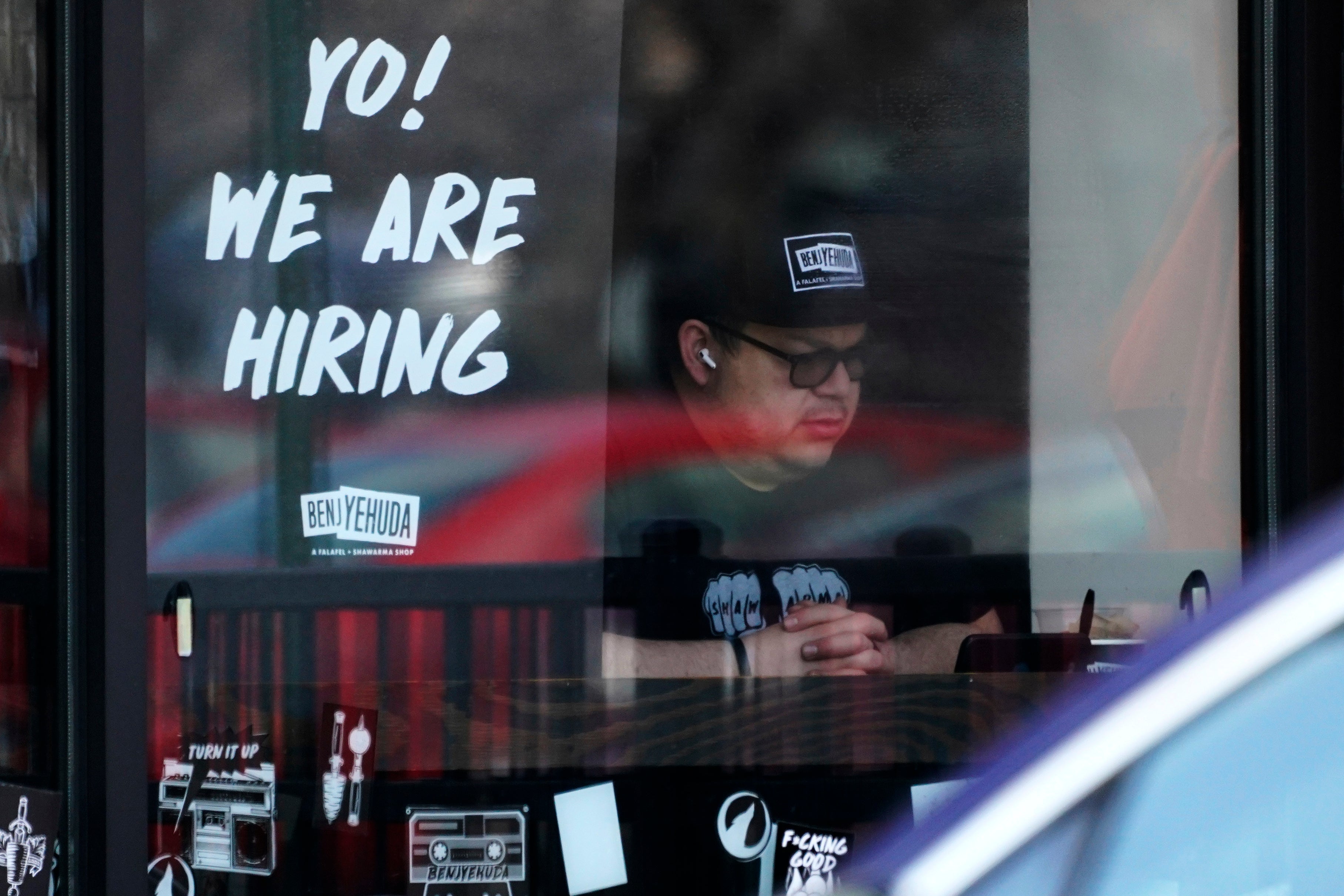Fewer Americans file for jobless benefits last week
Slightly fewer Americans filed for unemployment benefits last week as the labor market continues to be the strongest segment of the U.S. economy

Your support helps us to tell the story
From reproductive rights to climate change to Big Tech, The Independent is on the ground when the story is developing. Whether it's investigating the financials of Elon Musk's pro-Trump PAC or producing our latest documentary, 'The A Word', which shines a light on the American women fighting for reproductive rights, we know how important it is to parse out the facts from the messaging.
At such a critical moment in US history, we need reporters on the ground. Your donation allows us to keep sending journalists to speak to both sides of the story.
The Independent is trusted by Americans across the entire political spectrum. And unlike many other quality news outlets, we choose not to lock Americans out of our reporting and analysis with paywalls. We believe quality journalism should be available to everyone, paid for by those who can afford it.
Your support makes all the difference.Slightly fewer Americans filed for unemployment benefits last week as the labor market continues to stand out as one of the strongest segments of the U.S. economy.
Applications for jobless aid for the week ending August 13 fell by 2,000 to 250,000, the Labor Department reported Thursday. Last week's number, which raised some eyebrows, was revised down by 10,000.
The four-week average for claims, which evens out some of the week-to-week volatility, fell by 2,750 to 246,750.
The number of Americans collecting traditional unemployment benefits increased by 7,000 the week that ended August 6, to 1.43 million. That's the most since early April.
Unemployment applications generally reflect layoffs and are often seen as an early indicator of where the job market is headed.
Hiring in the United States in 2022 has been remarkably resilient in the face of rising interest rates and weak economic growth.
The Labor Department reported earlier this month that U.S. employers added 528,000 jobs in July, more than double what forecasters had expected. The unemployment rate dipped to 3.5%, tying a 50-year low reached just before coronavirus pandemic slammed the U.S. economy in early 2020.
The United States recovered with unexpected strength from 2020′s COVID-19 recession, leaving businesses scrambling to find enough workers.
That's not to say the U.S. economy doesn't face challenges. Consumer prices have been surging, rising 8.5% in July from a year earlier — down slightly from June’s 40-year high 9.1%. To combat inflation, the Federal Reserve has raised its benchmark short-term interest rate four times this year.
Higher borrowing costs have taken a toll. The economy contracted in the first half of the year — one measure suggesting the onset of a recession. But the strength of the job market has been inconsistent with an economic downturn.